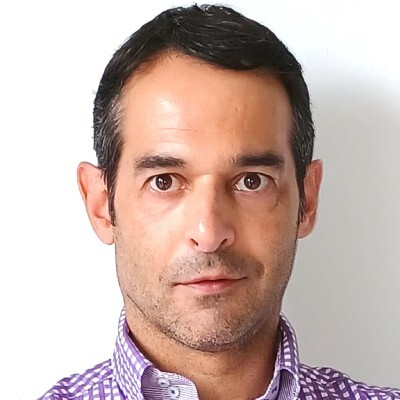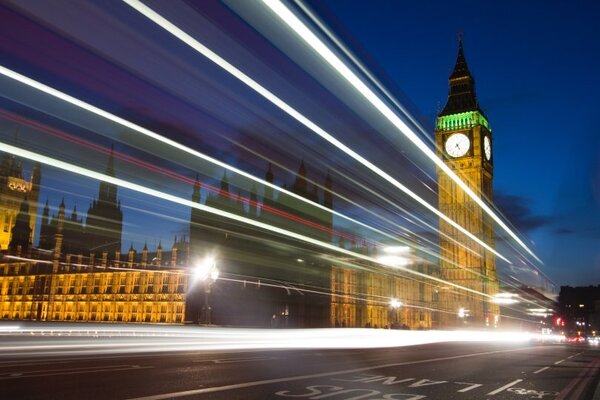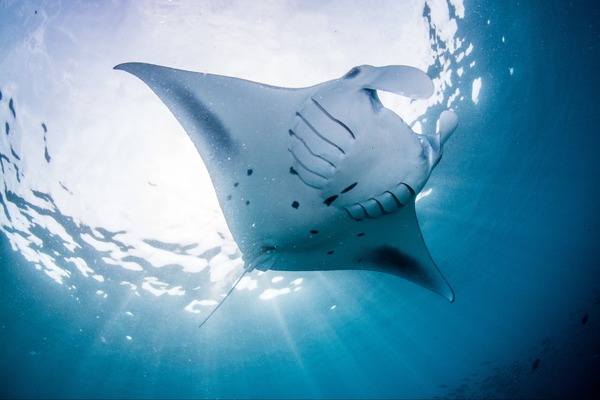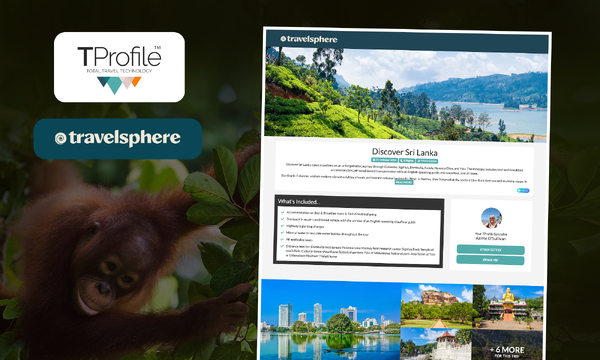The Big Question: Is the 'S' word starting to put customers off?
It’s a crucial issue, but how can travel communicate its sustainability message effectively to consumers without risking overkill or apathy?
TTG’s Big Question series, which promotes frank exchanges of views on the key issues facing travel, continues this month with a look at how the industry should communicate sustainability to customers – whether to encourage responsible travel behaviours or educate them on the impact of their choices.
The word “sustainability” has come to mean a lot in the travel industry. It is used to communicate any form of environmental or social consideration, be that carbon reduction, overtourism, social inclusion or behaviours to help protect the planet. It has become all-encompassing, for better or for worse.
Speaking to TTG for its September issue, Abta chief executive Mark Tanzer warns its meaning is at risk of becoming “washed out”, and there are certainly more people – including us at TTG – questioning whether the “S” word is the right one to use.
This topic came up a lot at TTG’s Fairer Travel Sustainability Forum in July during Fairer Travel Month. Is the “S” word for marketing? Only if you can back up any claims, one panel concluded.
Explore Worldwide’s Hannah Methven suggests its definition has become too broad, while the Spanish Tourist Office’s Jesus Ruiz says it’s perhaps overused as a catch-all term.
Moreover, do customers actually respond to the term “sustainability”? Some industry figures assert customers don’t buy because of sustainability, they expect their travel provider to have all this covered.
Not Just Travel’s Gilly Bachelor, TTG’s Smarter, Better, Fairer Travel Agent of the Year in 2023, guides clients towards “unconscious” sustainable practices. “Clients recognise the importance of sustainability, but it often doesn’t drive their holiday choices,” she says.
So this month, we asked some of our forum panellists to consider this topic in more depth, with tips on how to make the “S” word an easier sell while not necessarily mentioning it.
What do you think? Join in the debate in the comments below, or email feedback@ttgmedia.com. Alternatively, head to one of TTG’s social media channels to get involved.
'To really engage people, we need to use specifics'
We know Explore customers are interested in making more sustainable choices, but what does that actually mean? The word “sustainability” is vague, and the subject covers everything from measuring carbon emissions to fostering diversity and inclusion.
To really engage people, we need to use specifics – talk about the locally owned partner businesses you work with; the fresh food grown in the homestay your clients will visit; and how travelling by train instead of flying reduces the carbon footprint.
It’s much more engaging to talk about an amazing meal in a local restaurant than a bland statement saying this holiday puts money into the local economy. Because when it comes down to it, these experiences are often the things our customers remember most about their holidays.
As businesses, we need to ensure we’re letting customers know sustainability is important to us, while explaining what it means to us and what actions we’re taking. We’re committed to taking our customers and agent partners on the journey with us.
The fourth step in our Climate Action Plan is “communicate”. Our marketing team have a KPI to ensure 20% of our communications are purpose-led. We promise to be transparent. We share our successes while acknowledging where we’ve fallen short. We’re all on a steep learning curve and we’re learning all the time.
Communication is key for industry progression, too. There’s no room for competition in sustainability. We want other businesses to learn from what we’re doing. This is why we publish our methodologies and results, and why we take part in events such as TTG’s Fairer Travel Month and other open discussions on these crucial topics.
Together, we’re stronger and have a bigger voice.
Hannah Methven is sustainability specialist at adventure tour operator Explore Worldwide.
'We aspire to cultivate a culture of sustainability among our clients'
Clients recognise the importance of sustainability, but it often doesn’t drive holiday choices. They’re open to our eco-friendly suggestions, but hesitant to change their specific needs or pay extra.
We’re committed to guiding clients towards making “unconscious” sustainable choices. We don’t use the “S” word at all. We seek to make them more aware of these options without being explicit.
We embed sustainability in all aspects of our operations and communications, from promoting direct flights and longer journeys, to integrating rail where possible.
We prioritise working with B Corp Certified suppliers, and although only a fraction of the more than 300 suppliers we work with are B Corp, we make sure sustainability features in every package.
This includes advocating for eco-friendly hotel groups such as Ikos and Iberostar, and promoting ethical local tours and excursions.
We’ve enhanced our “travel ready” meetings, which are held 72 hours before departure, where we advise clients to pack reusable water bottles and invest in “bar” toiletries to reduce plastic waste. Also, our loyalty scheme rewards Diamond clients with complimentary UK airport transfers in electric vehicles.
We’ve also improved our business operations by investing in energy-efficient lighting and devices, and installing solar panels.
By embedding these efforts into our operations and client interactions, we aspire to cultivate a culture of sustainability among our clients. If every travel agent adopted similar practices, we could collectively make significant strides towards promoting sustainable travel.
No effort is too small.
Gilly Bachelor is a Not Just Travel personal travel consultant. She was named TTG's Smarter, Better, Fairer Travel Agent of the Year at the Travel Industry Awards 2023 by TTG.
'There’s a need for new metrics that go beyond volume or income'
Communicating sustainability effectively via multiple channels, and also with the help of travel agents, is a major responsibility for the Spanish Tourist Office in the UK.
Spain welcomed 85 million international visitors in 2023, breaking its pre-pandemic record. With interest in Spain at an all-time high, the country is now focused on managing this success and sustaining responsible tourism.
The Spanish government has developed a national agenda to meet the sector’s medium- to long-term challenges. Instead of just attracting visitors, the strategy aims to boost Spain’s commitment to the planet by integrating more sustainable practices.
We want to attract visitors who provide economic, social and environmental value to destinations. To do so, Spain has shifted its focus from visitor volumes to using new indicators that better reflect quality of life in local communities and the quality of tourism jobs.
We’re running a pilot project based on a survey (the result of more than 25,000 interviews across various Spanish communities) to better understand and assess how tourism growth impacts local residents.
We also know the importance of collaboration across sectors and want to help tourism find ways to develop new products, market segments and sales channels to encourage consumers, companies and destinations to pursue more sustainable practices.
There’s a need, though, for new metrics and KPIs that go beyond volume or income. Turespana is working with UN Tourism to measure and implement KPIs to manage tourism sustainably.
Jesus Ruiz is head of sustainability and impact at the Spanish Tourist Office.
The Big Question by TTG
The Big Question is a monthly feature from TTG taking on some of the burning issues facing travel through expert commentary, insight and debate. While it's not designed to be adversarial, it won't flinch from placing a spotlight on some often uncomfortable topics travel – like it or not – will one day have to reckon with.
- Is the 'S' word starting to put customers off?
- Is direct action targeting commercial travel ever justifiable?
- Is it time to rebrand the travel agent?
- Does travel have an ageism problem?
- Has travel added too much capacity for summer 2024?
- Can celebrity endorsements ever be truly responsible?
- Do women have equal opportunity to progress in travel?
- Should the cruise sector shout about lower prices?
- Is it time for a change of government?
- Has the pandemic changed peaks for ever?
- Is it finally time to turn APD into an environmental tax?
- Does all-inclusive value come at too high a price for the planet?
- Can cruise sail ahead of land-based breaks?
- Should travel companies still be selling captive animal attractions?
- Can aviation do more to help disabled travellers?
- Is there a future for private jets in travel?
- Should agents start charging for their time?
- Is it finally time to reform the Atol scheme?
- Should we be flying during a climate crisis?
Sign up for weekday travel news and analysis straight to your inbox

Sarah Dennis
Supplier Directory
Find contacts for 260+ travel suppliers. Type name, company or destination.















